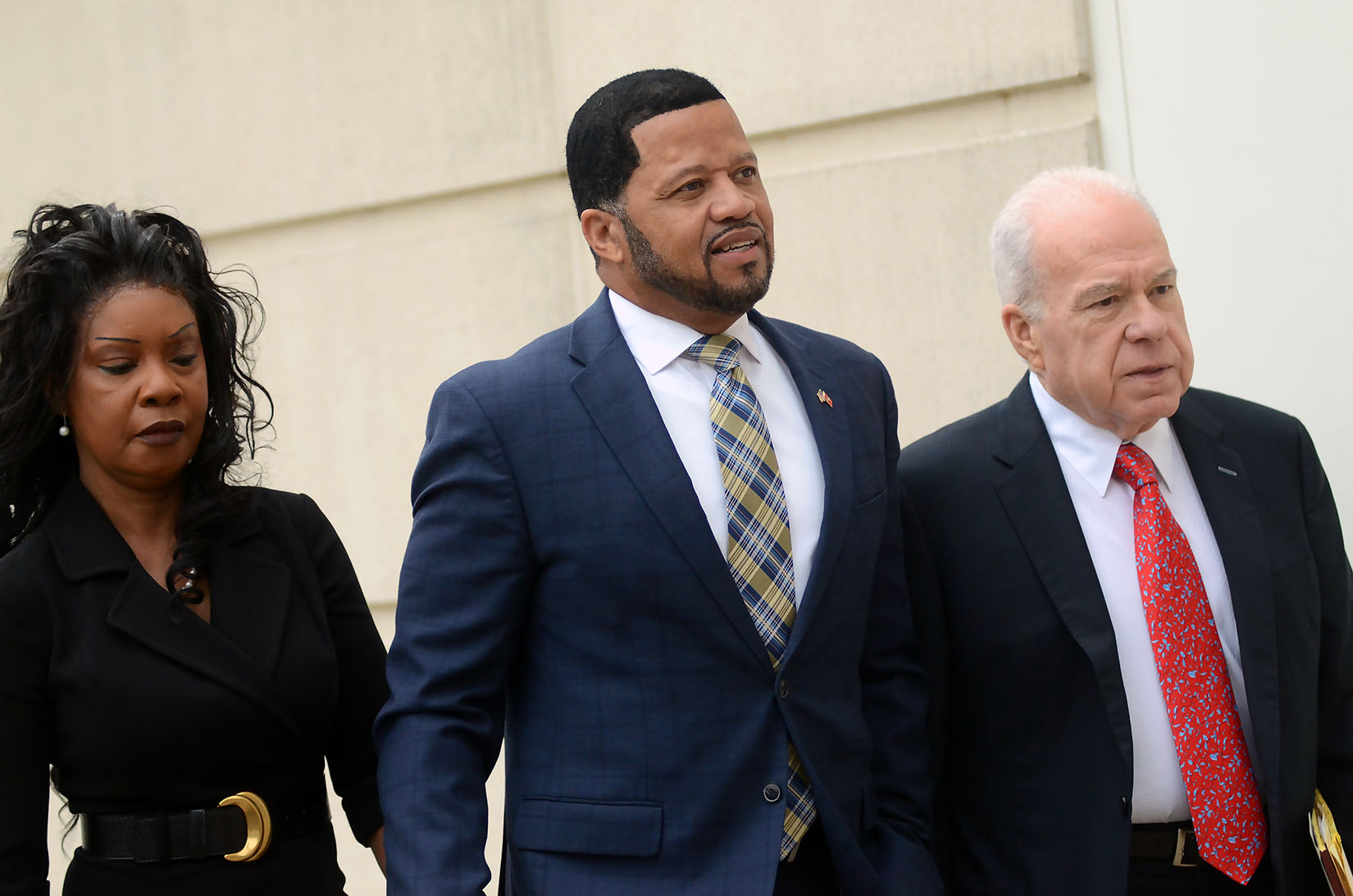Marshand Crisler, the former Hinds County interim sheriff and candidate, faces up to 10 years in prison after a federal jury in Jackson found him guilty Friday of soliciting and accepting bribes from a man with previous felony convictions and a pending violent charge.
Crisler was charged with soliciting and accepting $9,500 worth of bribes during his unsuccessful 2021 campaign for Hinds County sheriff in exchange for favors and giving the man ammunition he can’t possess as a felon.
The jury took about two hours to reach a unanimous verdict on both charges.
He will remain out on bond until a sentencing hearing scheduled for Feb. 6, 2025.
When the verdict was read Friday afternoon, Crisler and family members seated behind him remained silent. On the way out of the courthouse, he referred comments to his attorney John Colette.
Colette told reporters outside the courthouse that they are disappointed in the jury’s decision and have plans to appeal. He added that Crisler maintains his innocence, and that he and his family are upset about the jury’s decision.
Over three days, the jury heard testimony from six witnesses and reviewed evidence including recordings of conversations between Crisler and Tonarri Moore, the man with past felony convictions and pending state and federal charges who the FBI recruited as an informant.
Moore made the recordings for investigators. During several meetings in Jackson and around Hinds County in 2021, Crisler said he would tell More about investigations involving him, move Moore’s cousin to a safer part of the Hinds County jail, give him a job with the sheriff’s office and give him freedom to have a gun despite prohibitions on Moore having one.
After the government finished calling its witnesses, Colette, made a motion for judgment of acquittal based on a lack of evidence to support charges, which Senior Judge Tom Lee dismissed.
Friday morning, the jury heard from Crisler himself as the defense’s only witness.
In closing arguments, the government reminded the jury that Crisler accepted money from Moore and agreed, as a public official, to act on a number of favors.
Crisler didn’t report any money as a campaign contribution, the government argued, because Crisler didn’t want it to become public that he was taking bribes from a felon.
“How he did it shows why he did it,” said Charles Kirkham of the U.S. Attorney’s Office.
Defense attorney Colette told the jury that the evidence doesn’t prove bribery. Crisler was trying to secure campaign funds from Moore, which is not illegal.
Colette asked and jury instructions allowed the jury to consider whether there was entrapment of Crisler, who he said was not a corrupt law enforcement officer
“This entire case,” Colette said. “This corruption was all set up by the FBI so they could knock it down.”
The government got the last word and emphasized that the bribery doesn’t require the agreed acts to be completed.
In response to accusations of entrapment, Assistant U.S. Attorney Bert Carraway said Crisler wasn’t reluctant to take the money, agreed to perform favors or break the law, making the analogy that Crisler never took his foot off the gas and kept accelerating.

